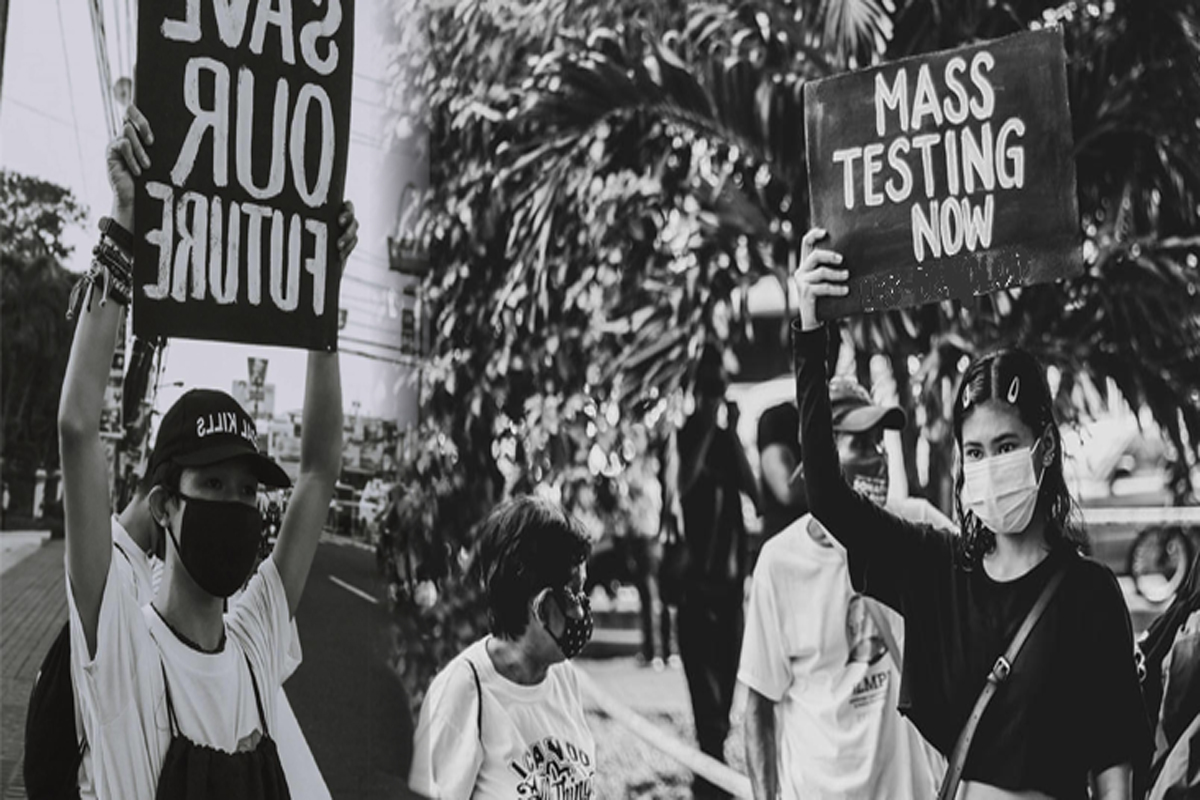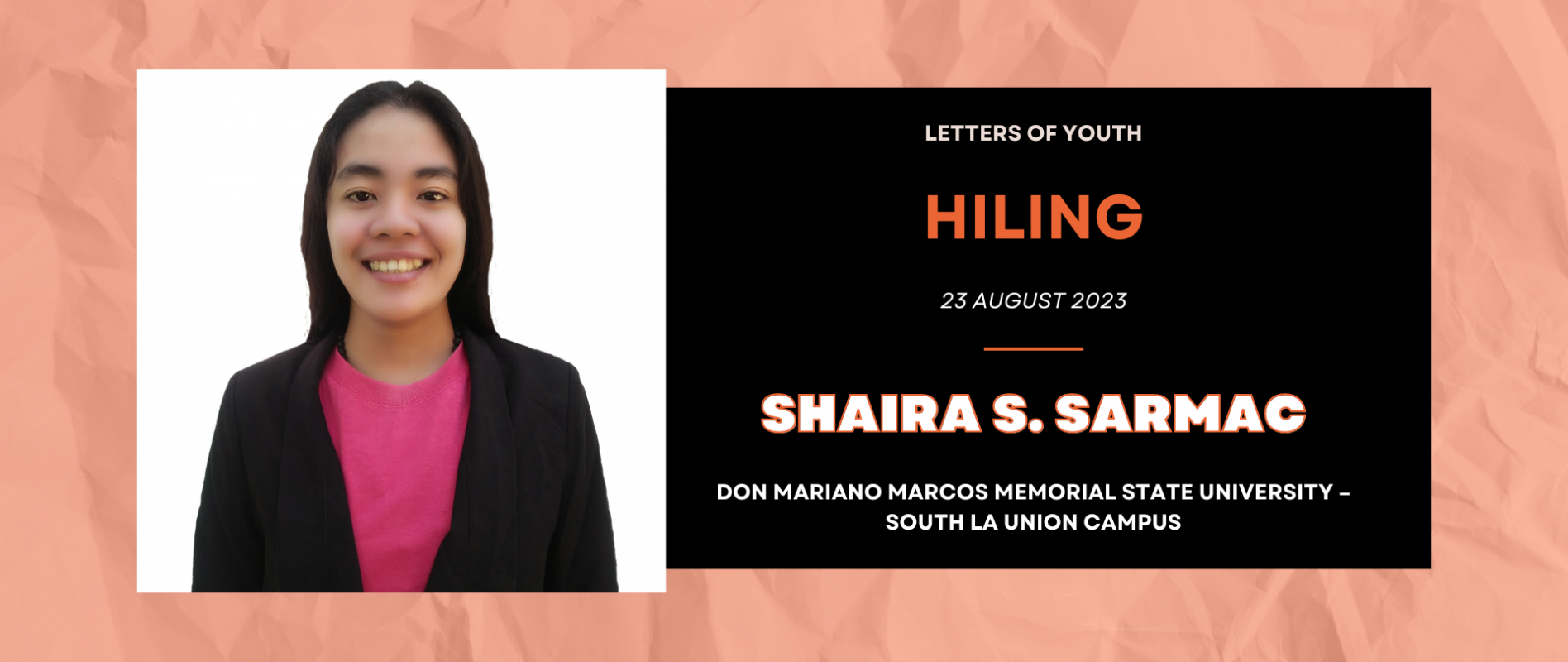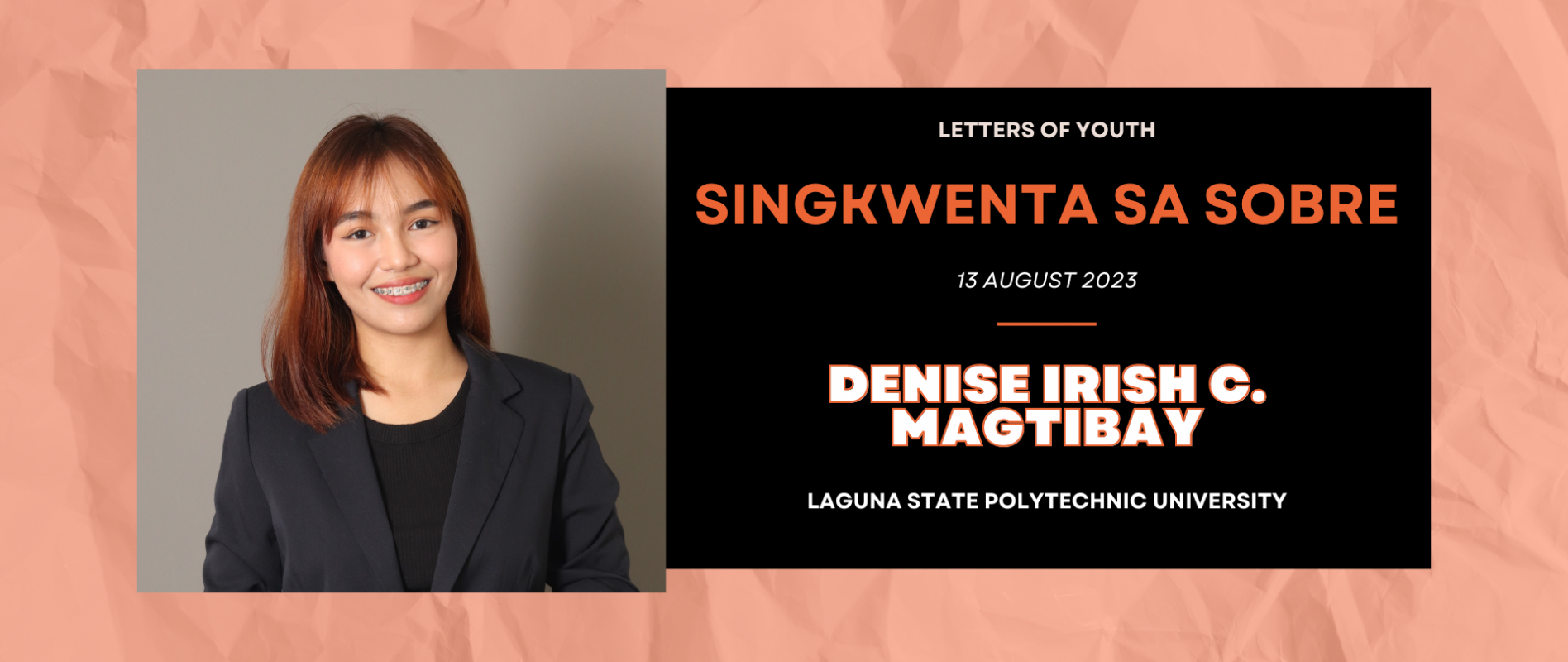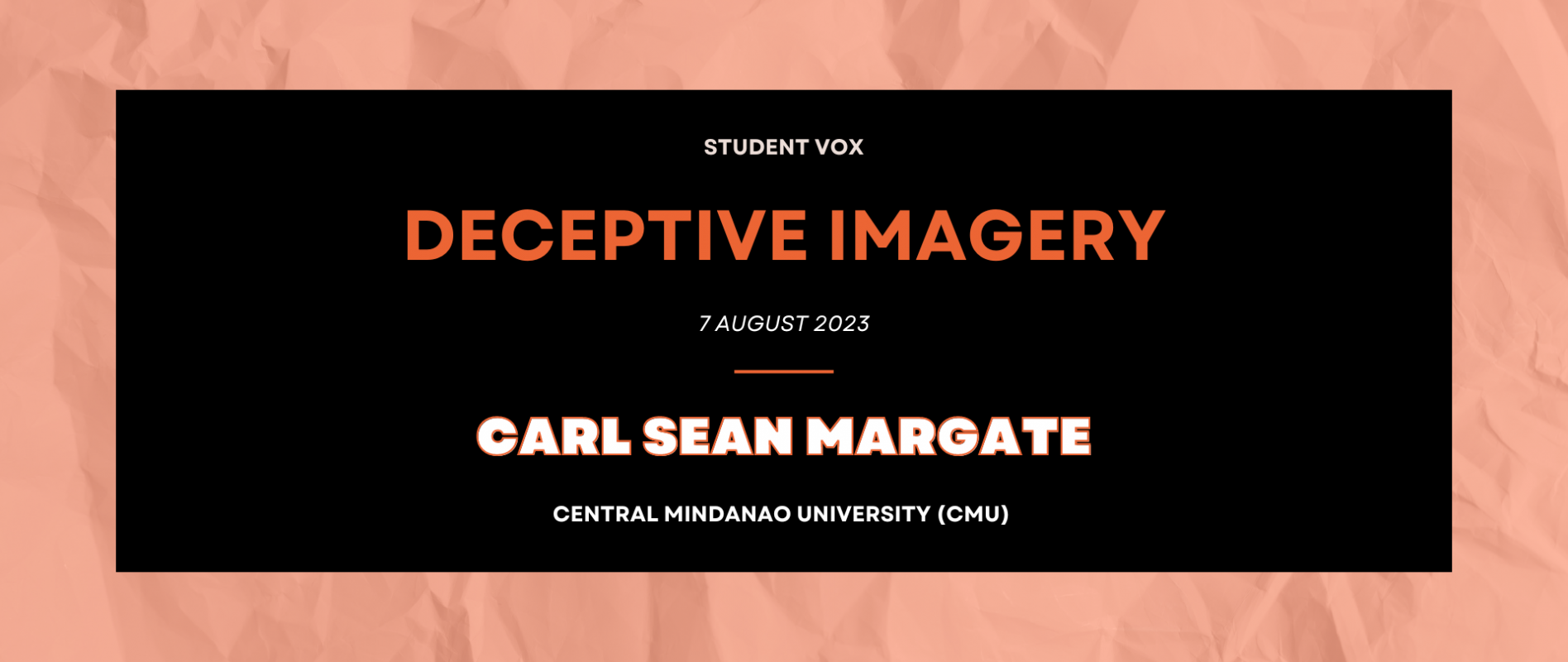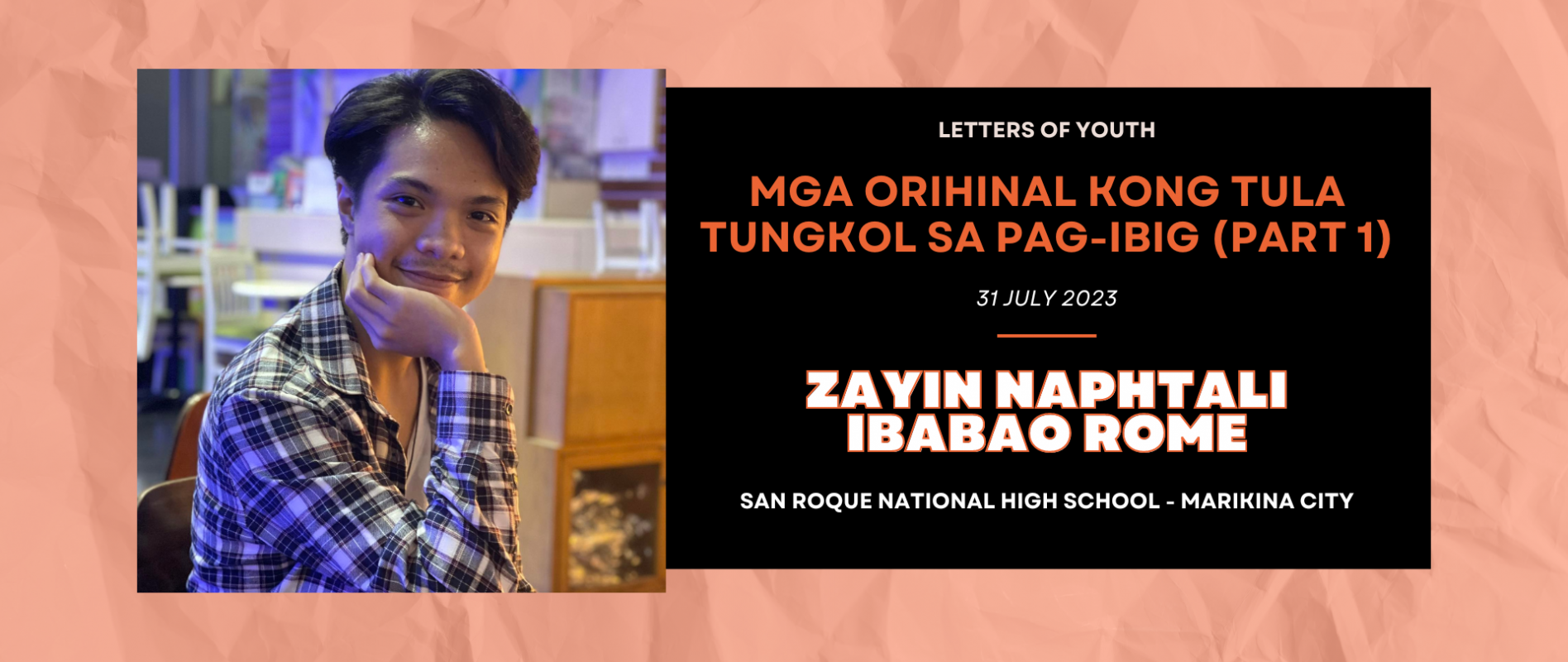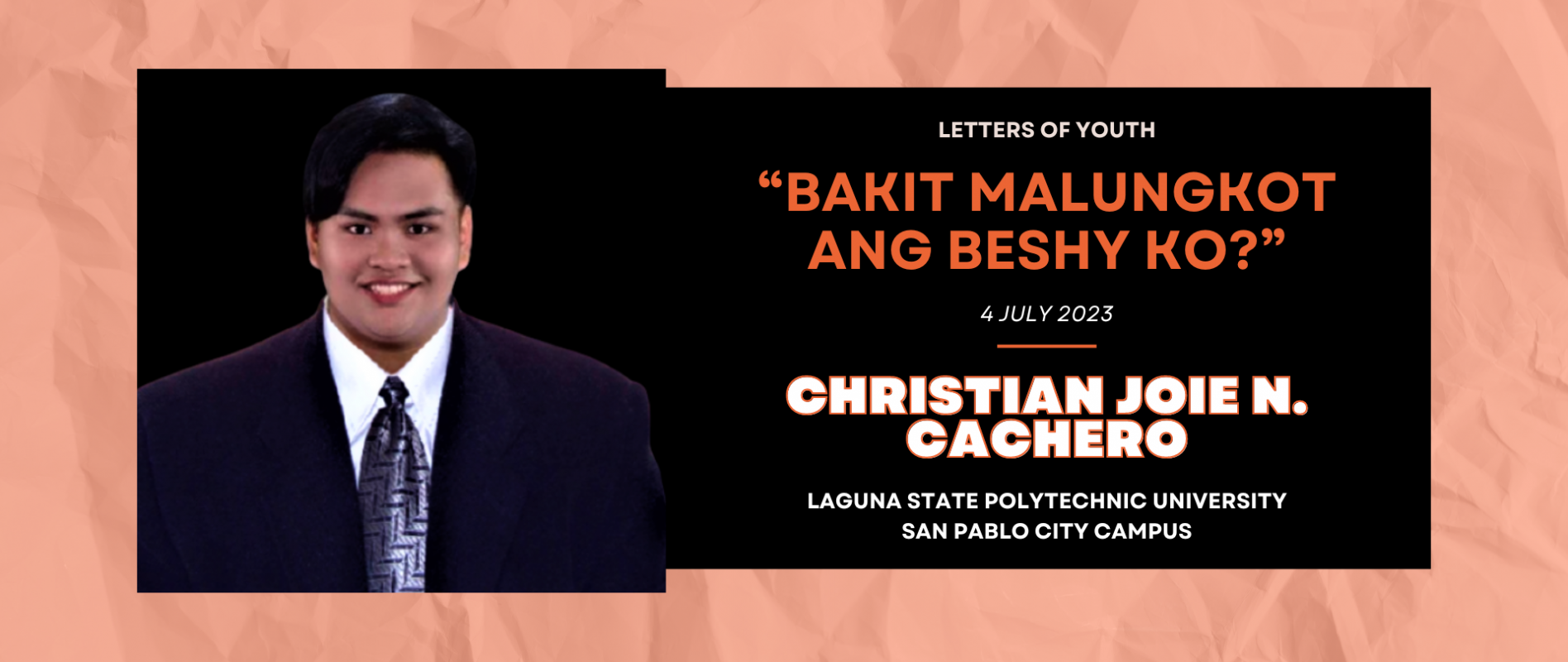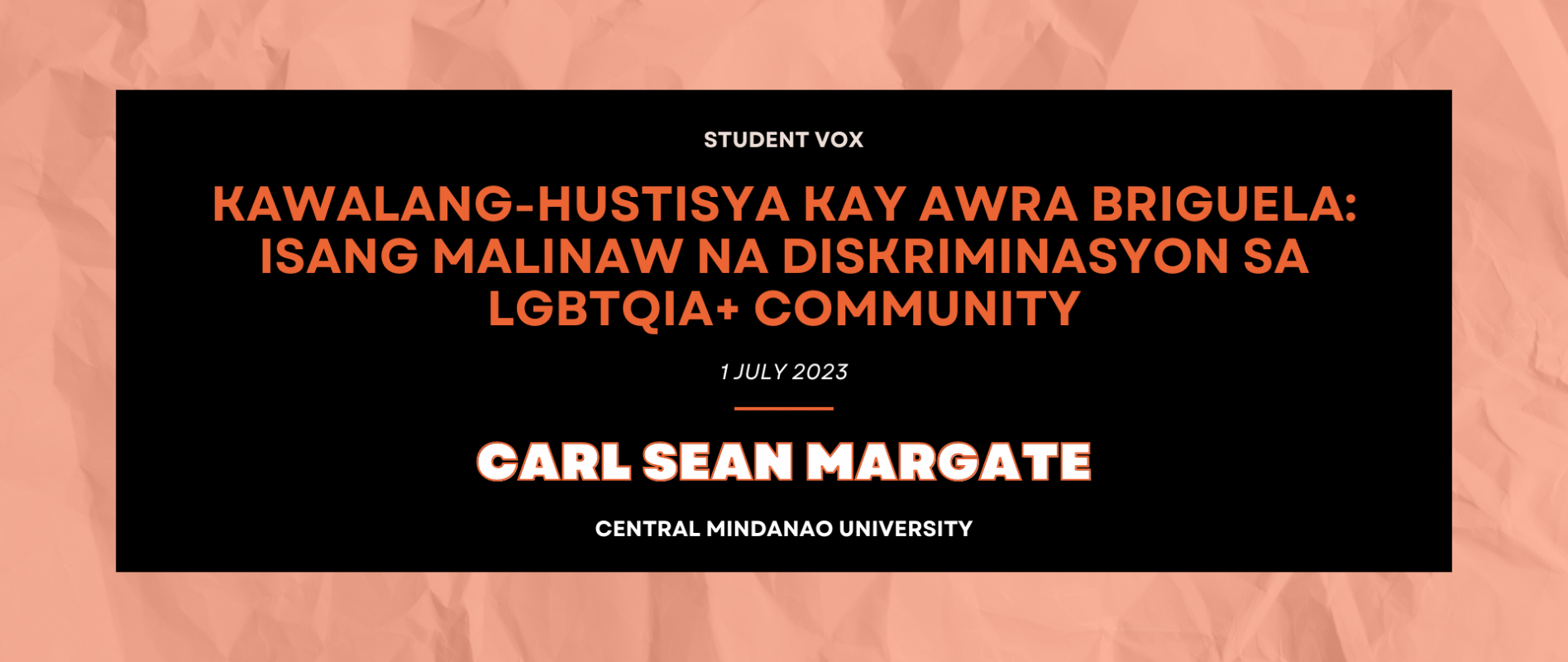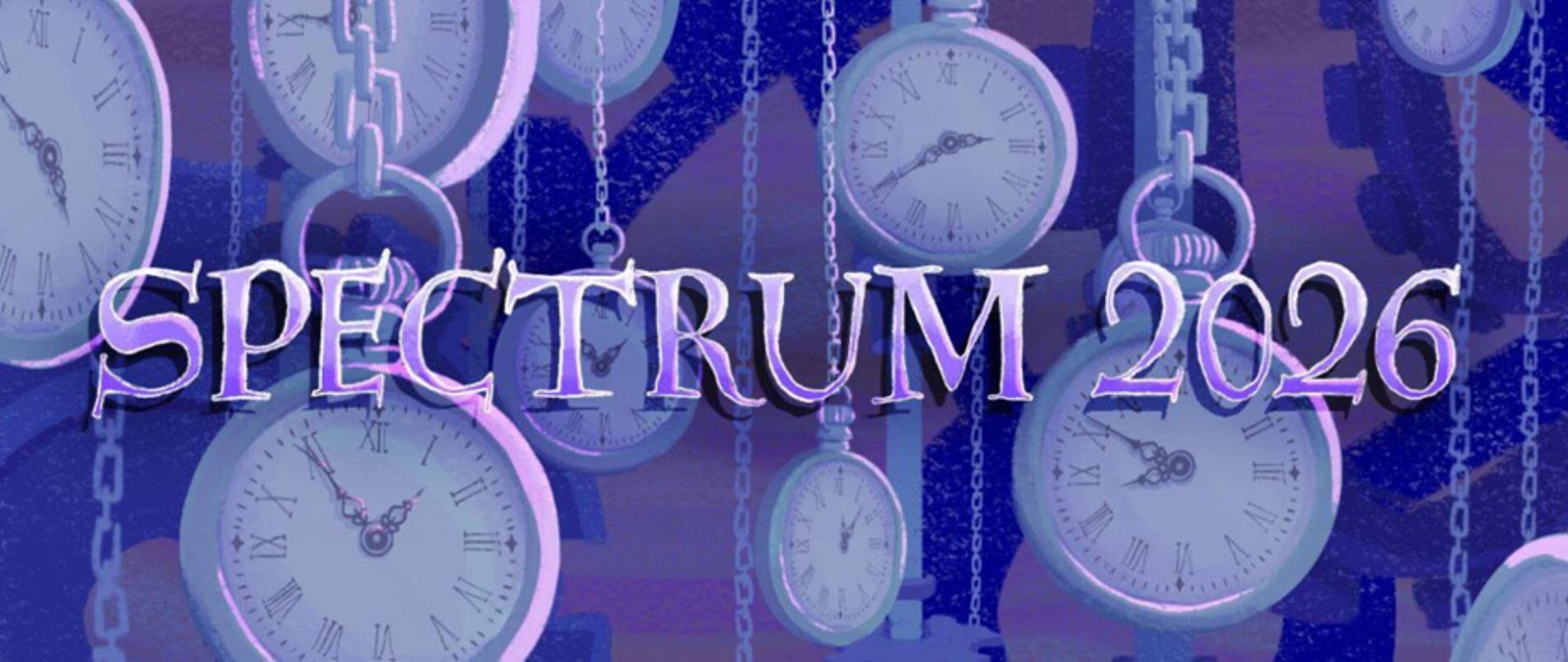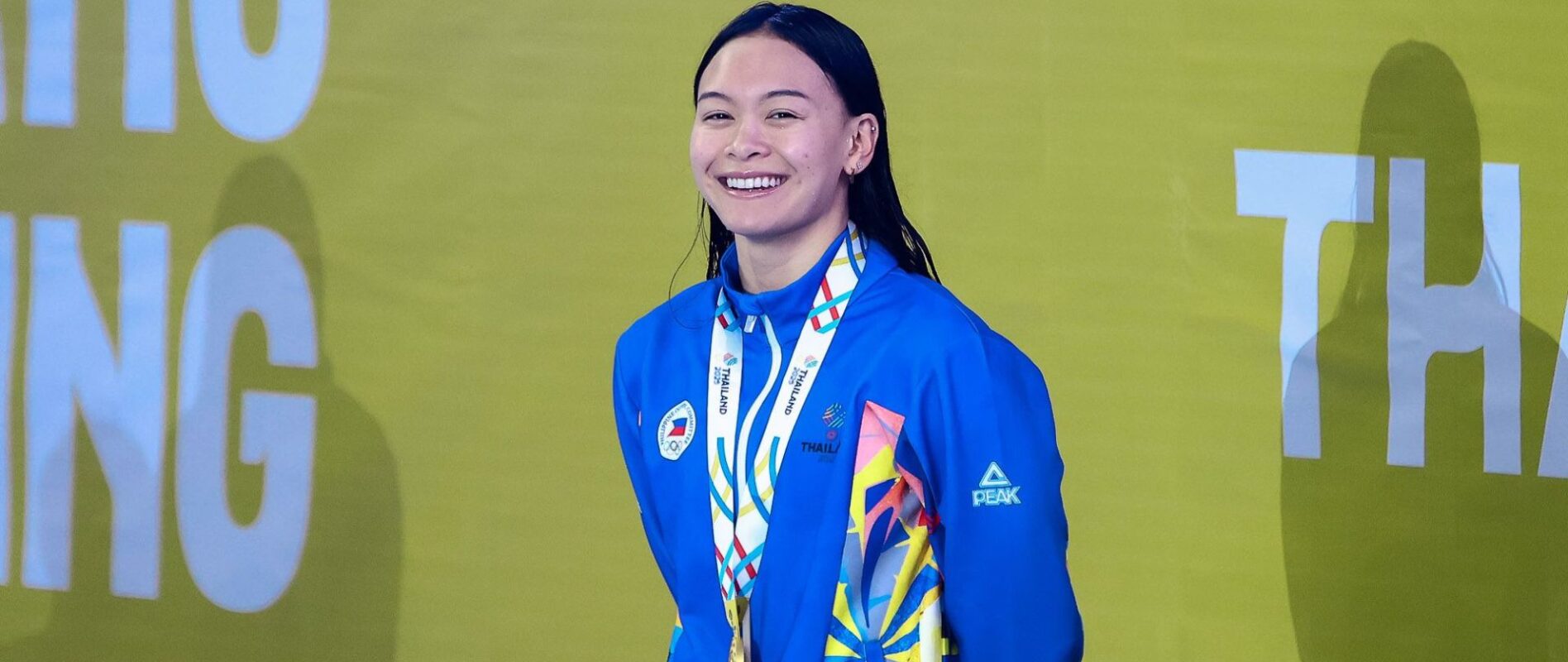ANONG AMBAG MO? STUDENT ACHIEVERS CONTINUE THE PLIGHT FOR SOCIAL JUSTICE AMID THE PANDEMIC
In the Philippines, rallying, participating in protests, and joining in mobilizations are considered a taboo, pronouncing those who are joining in these activities to being paid, lacking sufficient information on societal issues, and are against the government. However, Haydn Lagunay and Joshua Villalobos, both student achievers, are known to be doing such in Bacolod City, Negros Occidental, but they are showing everyone that they are the complete opposite of these descriptions.
Lagunay and Villalobos are academic achievers since their elementary years. In their Senior High School, Lagunay took the Science, Technology, Engineering and Mathematics (STEM) strand while Villalobos took the Humanities and Social Sciences (HUMSS) strand, and while they are continuously thrown with statements such as “Mag-aral nalang kayo” and “Rally nang rally, bagsak naman sa eskwela!”, they both graduated “With Highest Honors” in Senior High School. Villalobos, together with his groupmates in his class, was recognized as the team with the Best Community Portfolio in one of their specialized subjects in HUMSS. On the other hand, Lagunay was the recipient of the Rogie Legaspi Science Award and the Mercury Drug Foundation Gawad Talino Excellence in Science Award for their batch in Senior High School.

Aside from being academically excelling, Lagunay and Villalobos have also been actively taking part into community service as they take leadership roles in school or even in the community, and in 2018, because of their efforts in leadership, academic excellence, and community service, both received the Youth Leadership Excellence Award (YLEA), a national award given by Junior Chamber International (JCI) Incorporated-Philippines to outstanding Junior High School students in the country. In the same year, Lagunay was part of the Top 10 in the search for The Outstanding Students (THOS) of JCI-Bacolod. Recently, Villalobos was one of the nominees for Outstanding Young Human Rights Defender for the Ignite Awards for Human Rights by Amnesty International-Philippines.
Despite the numerous criticisms that both these student achievers are receiving, they are relentless in advocating for social justice as they are likewise breaking the stereotypes of what rallyists, protesters, and mobilizers are usually characterized.
“I learned the concepts and values of justice, humanity, stewardship, etc. in the school, and I get to practice them on the streets,” Lagunay shared.
In an article by Villalabos, he also expressed how [social] activism helped him in his studies.
“When I go back to class, the reports, the analyses, the writing activities, and the group works have been less strenuous for me, and when social issues are being discussed in the class, it is always an advantage to have an informed opinion,” Villalobos pointed out.
He further explained, “Activism is a form of education. While it helps you in your formal education, it is an education in itself.”
They also said that academic achievement is insignificant if it is not used in contributing to societal progress and change.
“Academic achievements and high ranking grades are nice and worthy to be proud of, but then what? What do you do with all the knowledge you’ve gained?” Lagunay expressed.
Villalobos shared the same thoughts with Lagunay, saying, “Para kanino ba tayo nag-aaral? Para lang ba sa ating mga sarili? Dahil sa huli, aanhin pa natin ang ating mga medalya at sertipiko ng pagkilala kung bago pa man tayo magtapos ay wala na, wala na tayong karapatang magsalita.” (To whom do we study for? Is it just for our selves? Because in the end, what can we do with our medals and certificates if even before we can graduate, we no longer have the right to speak?)
THE BEGINNINGS OF THEIR SOCIAL ACTIVISM
Lagunay and Villalobos share the same experience as they recalled the time when their passion for social activism started. Both of them were participants of the Negrosanon Young Environmentalists’ Summit, where they were exposed to the different situations and problems of the environment in the province.
“After that, I started joining mobilizations for the environment, specifically the revision and reimplementation of City Ordinance 562 in Bacolod City, and the struggle for a coal-free Negros; both of which is a win,” Lagunay shared.
Meanwhile, Villalobos added that his passion for social activism is rooted in him being “reklamador” or a constant complainer, as he recalled that he was always “criticizing systems, process, and the likes.”
He also started advocating for environmental protection but later widened his fight, including the marginalized sectors in the country, such as the poor and the LGBTQIA+ community.
Villalobos said that it is everyone’s “moral responsibility” to fight for a noble cause.
“I believe that you do not decide to be involved [in social activism activities]. It is when you’ll be aware of your current condition that will urge you to act upon it,” Villalobos said.
As for Lagunay, her realization of having privilege made her feel “as if she’s doing the bare minimum of fighting for my cause.”
She added, “People are bringing the fight to the streets and I didn’t have the heart to just watch them in the sidelines.”
CONTINUING THE PLIGHT AMID THE PANDEMIC
Even with the ongoing pandemic, these two continue their plight in social activism. Both of them expressed the need for social activism in situations such as the pandemic.
“Dissent is a duty of every Filipino, especially in these trying times. We must know our rights, and call out our government officials, who we are paying, if we get less than what we deserve,” Lagunay shared.
She also added that focused criticism can make the government move and can be “our biggest contribution especially in today’s time where the world leaders are confused.”
Meanwhile, Villalobos expressed that those who have the privilege to fight must fight as the most vulnerable to the pandemic’s impacts are not them but those in the marginalized sectors.
“The pandemic is teaching us that we are on the same ocean but in different boats. It has the worst impacts on vulnerable communities and this is literally about life and death,” Villalobos explained.
He added, “Activism in time of the pandemic is very important because oppression, human rights violations, and corruption do not stop during a pandemic. This pandemic has even been used to silence dissent and valid and reasonable demands.”
Yet, even as they see the necessity of social activism during the pandemic, Lagunay and Villalobos also acknowledge the threats their actions might bring to their health and even to their lives; however, they reiterated their commitment to their role as they are ready to brave all the threats that may come on their way.
Villalobos even quoted his fellow social activist Zara Alvarez, the human rights defender who was gunned down recently in the province, when she said, “Kung tanan ‘ta mahadlok, sin-o ang mabilin kag magbato?” (If all of us will be scared, then who will be left to fight?)
Lagunay expressed the same sentiment as she said, “Dapat gani waay na kami gagwa, waay na kami dapat naga-dala placards sa dalan kag gaatubang sa police kay may pandemya. Gina-risgo namon amon kabuhi pero we have no choice. Our government is just THAT BAD and if waay may ma-rally kag ma-condemn sa ginapang-ubra nila, mapinagusto pagid na sila. (Actually, we shouldn’t be going out, holding our placards on the streets and facing the police because there is a pandemic. We are risking our lives but we have no choice. Our government is just that bad and if ther will be no one to rally and condemn their actions, they will just have all the more the freedom to do so.)
“We need to continue because the journey to achieve social justice and the society we all aspire for will not be given to us for free. We all need to do our share,” Villalobos added.
Currently, Lagunay is taking up BS Biology, while Villalobos takes up AB Sociology; both of them being scholars in their respective universities.
Now that they are also continuing with their studies, they also expressed the importance of having more people joining the fight, especially those who are academic achievers like them.
Lagunay even challenged the generation of today, saying, “Care enough to make this world that we have borrowed from the future generation, a better one. Small things that we can do accumulates into even bigger things that could eventually change the world if our generation only cared enough.”
Villalobos also urged today’s generation, “Learn. Be observant. Don’t be afraid. Offer your youth in doing something great! Umibig. Magmahal. Hindi tayo palaging galit, ang galit natin ay nanggagaling sa ating pagmamahal sa bayan at pag-asa na mas may mabuting Pilipinas sa hinaharap.” (Love. Be in love. We are not always angry. Our anger is coming from our love for the country and from our hope that there is still a better Philippines in the future.)
Lagunay and Villalobos may look overwhelming. Their stories may seem not normal. But they are just two of the many social activists in the country, dedicating their lives in being part of nation-building and in giving their contributions or “ambag” for the betterment of the country.
Ikaw, anong ambag mo?

